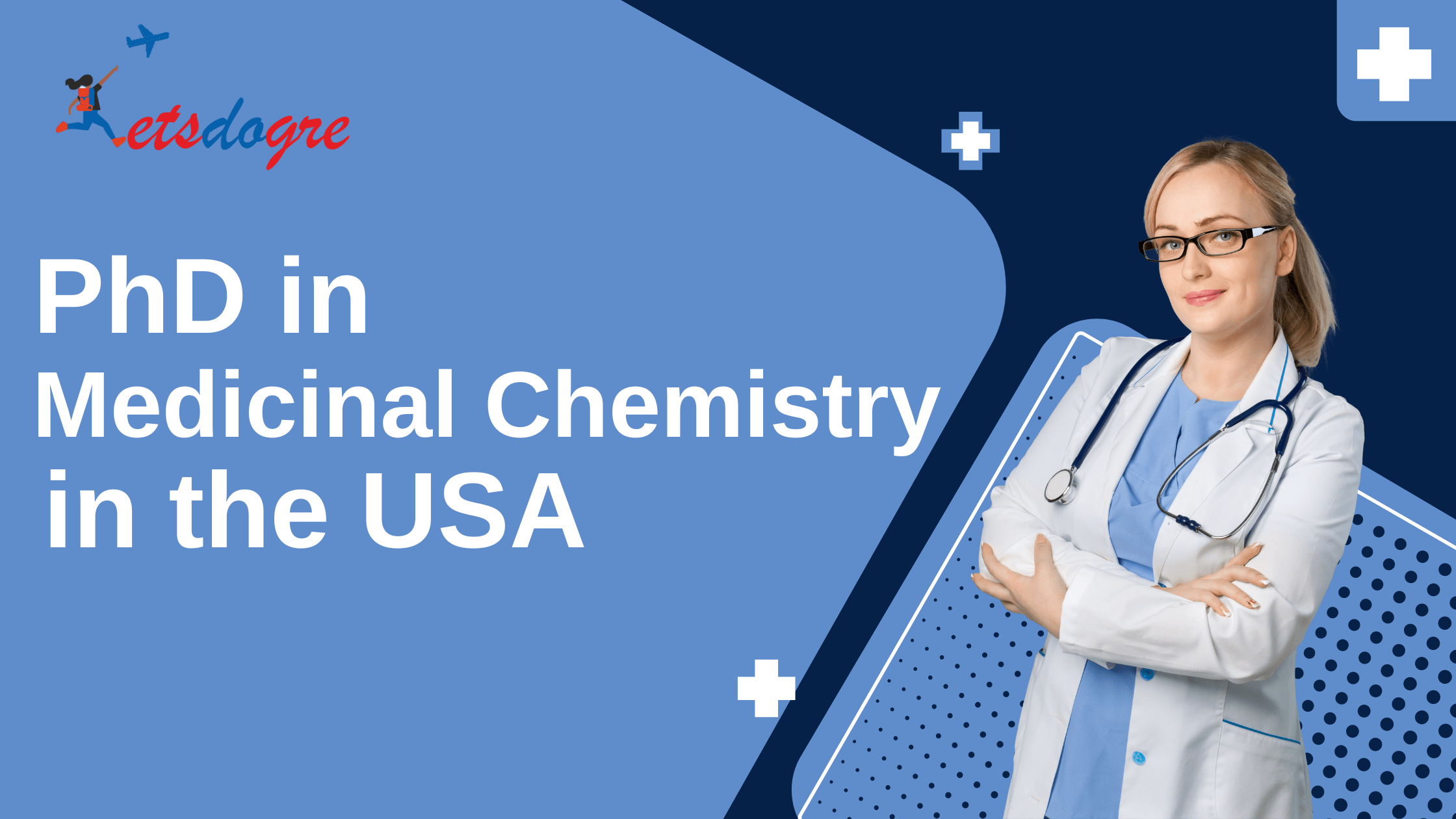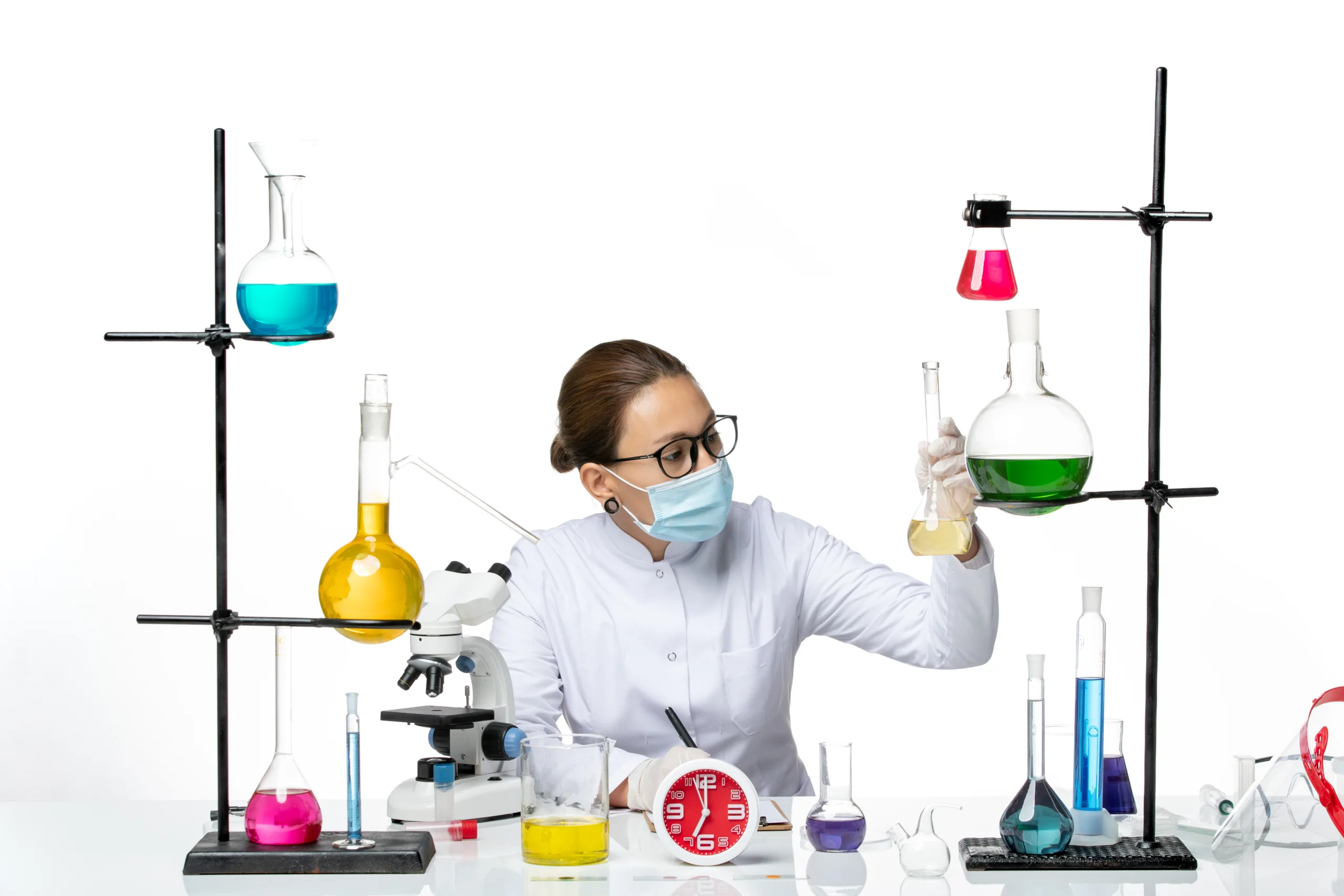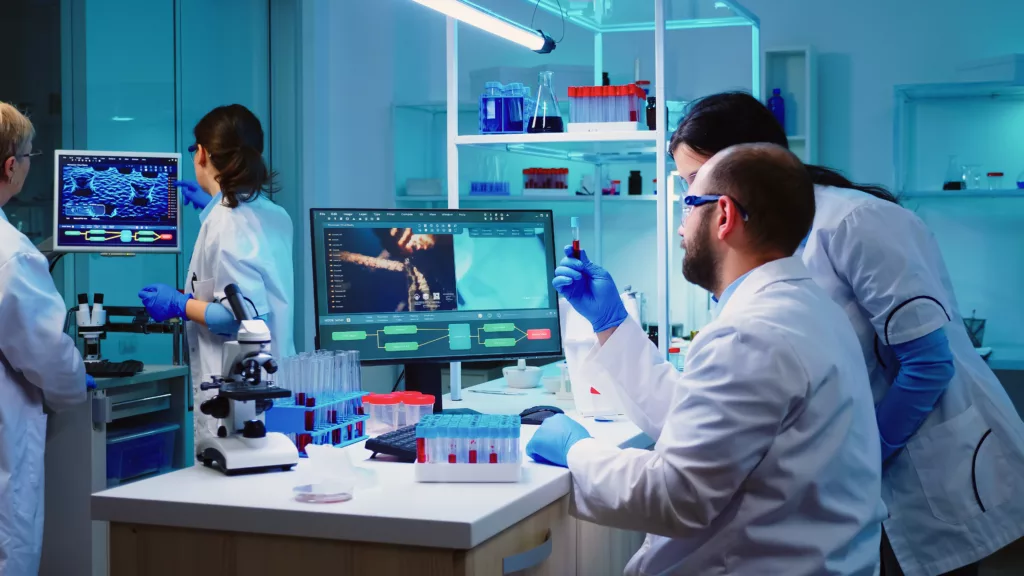
- April 4, 2024
- 5:09 am
-
Views: 442
PhD in Medicinal Chemistry in the USA
Definition of Medicinal Chemistry
Medicinal chemistry is defined as a scientific discipline at the intersection of chemistry, pharmacology, and biology, focused on designing, synthesizing, and optimizing chemical compounds for use as pharmaceutical drugs. It involves the study of the structure-activity relationships (SAR) of molecules to understand how their chemical structure influences their biological effects. Medicinal chemists work to discover and develop new drugs, improve the efficacy and safety of existing medications, and understand the mechanisms of drug action in the human body. This field plays a crucial role in the development of new medicines to treat various diseases and disorders.
What is the Purpose of a Ph.D. in Medicinal Chemistry?
A Ph.D. in medicinal chemistry aims to advance drug discovery research by providing intensive training in chemical principles. Graduates develop expertise in synthesizing and testing potential drugs, opening doors to careers in pharmaceuticals, biotechnology, or academia. Through innovative research, they contribute to the development of new treatments, impacting healthcare and patient outcomes. Many graduates publish their findings in prestigious journals such as the “Journal of Medicinal Chemistry,” “European Journal of Medicinal Chemistry,” and many more, furthering scientific knowledge and advancing the field.
Medicinal Chemistry Research Areas
- Drug Discovery and Design
- Biochemical Mechanisms of Disease
- Drug Delivery and Formulation
- Medicinal Natural Products
- Bioorganic and Medicinal Chemistry
- Pharmacokinetics and Pharmacodynamics
- Chemical Biology and Proteomics
- Molecular Imaging and Diagnostics
- Drug Safety and Toxicology
- Computational Chemistry and Molecular Modeling
- Nanomedicine and Nanotechnology
- Targeted Therapy Development
- Antibiotic and Antimicrobial Drug Discovery
- Neuropharmacology and CNS Drug Development
- Oncology Drug Discovery
- Immunotherapy and Vaccine Development
- Metabolic Disorders and Diabetes Research
- Inflammation and Autoimmune Diseases
- Regenerative Medicine and Tissue Engineering
Educational Qualification for a Ph.D. in Medicinal Chemistry in the USA
To pursue a Ph.D. in medicinal chemistry in the USA, candidates must have a bachelor’s degree in chemistry, biochemistry, pharmaceutical sciences, or a related field. Some programs may accept students with degrees in biology, pharmacology, or other related disciplines, provided they have a strong foundation in chemistry.

Application Requirements for a Ph.D. in Medicinal Chemistry in the USA
Statement of Purpose: A statement outlining the applicant’s research interests, career goals, and reasons for pursuing a Ph.D. in medicinal chemistry.
Personal Statement: A detailed personal statement outlining the applicant’s background, career goals, research interests, and reasons for pursuing a Ph.D. in medicinal chemistry.
Academic Statement: A statement addressing the applicant’s academic achievements, including relevant coursework, honors, awards, and any other academic distinctions.
Curriculum Vitae (CV): A comprehensive document detailing the applicant’s academic achievements, research experience, and relevant professional experience.
Research Experience: Documentation of previous research experience, especially in medicinal chemistry or related fields, highlighting specific projects, methodologies, and contributions.
Letters of Recommendation: Typically, three letters of recommendation from professors or research supervisors who can attest to the applicant’s academic abilities and potential for research.
English Proficiency: International applicants whose native language is not English may need to provide proof of English proficiency through tests like the TOEFL or IELTS unless eligible for a waiver.
English Proficiency Waiver: Applicants who have completed their undergraduate degree in an English-speaking institution or whose native language is English may be eligible for an English proficiency waiver. Documentation supporting the waiver request should be provided.
Transcripts: Official transcripts from all colleges or universities attended, demonstrating strong academic performance, especially in relevant coursework.
Some Universities offering Ph.D. in Medicinal Chemistry
University of Buffalo
Virginia Commonwealth University
University of Florida
University of Kansas
University of Montana
University of Illinois Chicago
Ohio State University
University of Michigan
Connect with us for more information on Universities offering Ph.D. in Medicinal Chemistry in the USA
Career after Ph.D. in Medicinal Chemistry
- Academic Researcher/Professor
- Industry Research Scientist
- Government Agency Scientist (e.g., FDA, NIH)
- Clinical Research Scientist
- Pharmaceutical Consultant
- Entrepreneur/Biotech Founder
- Science Writer/Communicator
- Regulatory Affairs Specialist
- Quality Control/Assurance Scientist
- Medicinal Chemist
- Drug Development Manager
- Pharmacologist
- Clinical Trials Manager
- Research and Development Director
- Toxicologist
- Biomedical Scientist
- Healthcare Consultant
Frequently Asked Questions
Graduate Research Assistantships (GRAs): Many Ph.D. programs offer research assistantships funded by the university or external grants. These assistantships typically provide a stipend, tuition remission, and sometimes health insurance in exchange for research or teaching duties.
Fellowships: Universities and external organizations offer fellowship programs to support Ph.D. students in medicinal chemistry. These fellowships may be based on academic merit, research potential, or specific demographic criteria.
Departmental Scholarships: Some departments within universities offer scholarships specifically for Ph.D. students in medicinal chemistry. These scholarships may be based on academic achievement, research interests, or financial need.
External Funding Sources: Ph.D. students in medicinal chemistry may also be eligible for funding from external organizations such as government agencies (e.g., NIH, NSF), private foundations, or industry sponsors. These funding opportunities often support specific research projects or areas of study.
A Ph.D. in medicinal chemistry in the USA typically lasts four to six years. The initial years involve coursework, lab rotations, and research proposal development, followed by full-time research focusing on the dissertation project.





